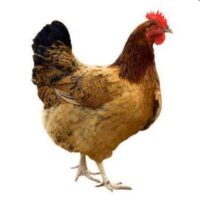Description
Broiler Chicken fresh Curry cut. Wight measured without liver and intestine. In one Kg it contain 2 drumstick.
The nutritional value of chicken can vary depending on the specific cut and whether it includes the skin. Here is a general overview of the nutritional composition of a skinless, boneless chicken breast per 100 grams of cooked meat:
– Calories: Approximately 165 calories
– Protein: Approximately 31 grams
– Fat: Approximately 3.6 grams
– Saturated fat: Approximately 1 gram
– Monounsaturated fat: Approximately 1 gram
– Polyunsaturated fat: Approximately 0.8 grams
– Cholesterol: Approximately 85 milligrams
– Sodium: Approximately 70 milligrams
– Potassium: Approximately 360 milligrams
– Vitamin B6: Approximately 0.6 milligrams
– Vitamin B12: Approximately 0.3 micrograms
– Niacin: Approximately 10 milligrams
– Selenium: Approximately 31 micrograms
– Phosphorus: Approximately 250 milligrams
– Iron: Approximately 0.9 milligrams
– Zinc: Approximately 1 milligram
Chicken is an excellent source of high-quality protein, which is important for muscle growth, repair, and overall body functioning. It is also relatively low in fat compared to other protein sources, with the majority of the fat content coming from healthy unsaturated fats.
Chicken is a good source of essential vitamins and minerals, such as vitamin B6, vitamin B12, niacin, selenium, phosphorus, iron, and zinc. These nutrients contribute to various bodily functions, including energy production, immune system support, and maintaining healthy blood cells.
It’s important to note that the nutritional composition may vary slightly depending on factors such as the cooking method, specific cut of chicken, and whether or not the skin is included. Additionally, processed chicken products, such as breaded or fried chicken, may have higher fat and sodium content.





